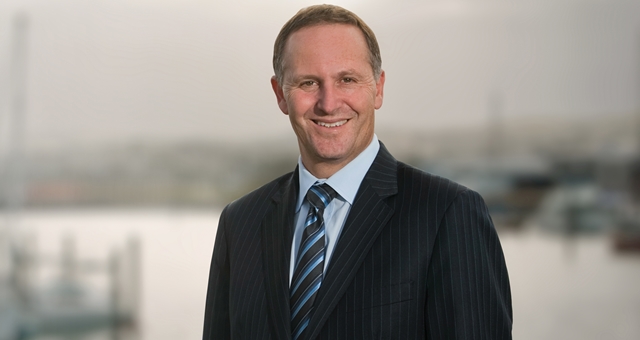
By James Wells at NZHIC in Auckland, New Zealand
New Zealand Prime Minister, John Key, has floated the concept of introducing a NZD$20 departure tax or bed tax to help offset $140 million in annual spending to support the 100% Pure New Zealand advertising campaign.
Speaking at the New Zealand Hotels Industry Conference (NZHIC) at The Langham Auckland yesterday (Jun 2), Prime Minister Key said: “There has been some talk in the industry about whether we should apply some charge somewhere along the line and use that charge to build what would be a fund that is collected solely for the purpose for why it was funded.
“So what the argument from the industry has been is put on some sort of charge – one argument could be a departure tax, one argument could be a bed tax and there are variations on what we can do.
“So here is the opportunity and here are the challenges with all of that, so at the moment, we are a little unusual, in that fundamentally as a government we pay 100% of tourism marketing – the national advertising for NZ 100% Pure and other related costs. We pay the bill and that is broadly NZD$140 million.
“So if we theoretically did that and run the concept for a second, let’s just say we put a $20 departure tax on – by the time you get to four million visitors which isn’t that far away, you are talking $80 million a year.
“Then the question is how elastic is it – how much dos it stop someone coming to New Zealand because they have to pay that and the answer is probably unlikely to be very elastic.
“It is easy for us to say that as we don’t have our businesses on the line, but in all reality if someone turns up, even with a family of four, and they come to New Zealand from Los Angeles and they are here for two weeks, they are pretty unlikely not to come because of NZD$80.
“If they are, then they shouldn’t come as most other places in the world, as it is all embedded and you don’t see it, but it is there.
“You could do the same thing with a bed tax, so if you are a backpacker it is 20 cents or 50 cents a night, and for a five star hotel it is going to be more.
“The problem with that is it is virtually impossible to solely target foreigners. Because by definition if I decide to go to Sydney, I am going to pay the departure tax. If I am a New Zealand tourist and I decide to go to Dunedin to watch the All Blacks play Wales in a few weeks time and if there is a bed tax then I am going to pay it. So that’s the first issue – it is very difficult to separate it out.
“We first looked at this in 2010, and I think in 2013-14, there was a proposal for differential pricing on national parks, and by the way that is not unusual – if you go to the United States, if you are a foreigner you pay more to go to Yosemite than if you are an American – so everywhere in the world they have this sort of stuff.
“But about three months ago, a number of the industry leaders came to me and said that you need bigger input into infrastructure and we want to come to you the government and present that to you.
“So if it happened it wouldn’t happen for a while, it’s gong to take quite a bit of time and I think that we need to think long and hard about whether we would agree to it. But I am telling you it is out there and it is floating around,” Key said.

